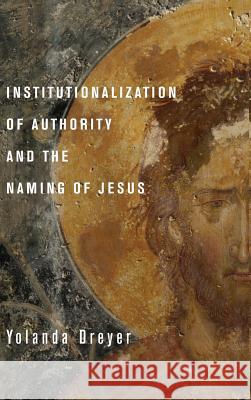Institutionalization of Authority and the Naming of Jesus » książka
Institutionalization of Authority and the Naming of Jesus
ISBN-13: 9781498262255 / Angielski / Twarda / 2012 / 176 str.
Description: This book is about the names given to Jesus by those followers responsible for putting his words and deeds into writing-the earliest ""Christian scribes."" In the first-century Mediterranean world, the first name of male person was his proper name. The second name indicated the family or clan to which he belonged, whereas the third name was an ""honorary title"" bestowed on him because of some achievement, good fortune, physical attribute, or ""special excellence."" Honorary titles were bestowed on Jesus mostly after his death. Such titles were often given to sages. The titles could either amplify Jesus' wisdom and empower people, or serve as instruments of power. This book aims to demonstrate the ideological and political mystification of Jesus in the transmission of the tradition about him. It illustrates the relevance of --The social history of formative Christianity; --The evolution of the Jesus traditions; --The genre of the gospels as biography; and --The institutionalization of charismatic authority. About the Contributor(s): Yolanda Dreyer is Professor in and Chairperson of the Department of Practical Theology at the Faculty of Theology of the University of Pretoria, in South Africa.
Description:This book is about the names given to Jesus by those followers responsible for putting his words and deeds into writing-the earliest ""Christian scribes."" In the first-century Mediterranean world, the first name of male person was his proper name. The second name indicated the family or clan to which he belonged, whereas the third name was an ""honorary title"" bestowed on him because of some achievement, good fortune, physical attribute, or ""special excellence.""Honorary titles were bestowed on Jesus mostly after his death. Such titles were often given to sages. The titles could either amplify Jesus wisdom and empower people, or serve as instruments of power.This book aims to demonstrate the ideological and political mystification of Jesus in the transmission of the tradition about him. It illustrates the relevance of --The social history of formative Christianity;--The evolution of the Jesus traditions;--The genre of the gospels as biography; and--The institutionalization of charismatic authority.About the Contributor(s):Yolanda Dreyer is Professor in and Chairperson of the Department of Practical Theology at the Faculty of Theology of the University of Pretoria, in South Africa.











